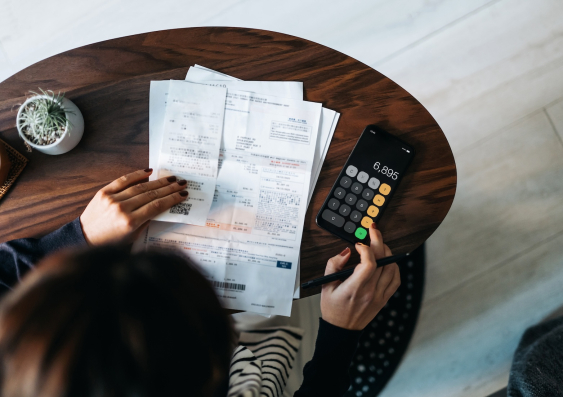1 in 12 Australians experience ‘multiple deprivation’: new poverty and inequality partnership report
2024-11-27T09:30:00+11:00

Photo: Adobe Stock
Multiple material deprivation is when a person lacks two or more essential items because they can’t afford them.
People receiving JobSeeker are around five times more likely to experience multiple deprivation than the general population, according to a new report by the Poverty and Inequality Partnership led by ACOSS and UNSW Sydney.
found about one in two people relying on JobSeeker and one in three sole parents are experiencing multiple material deprivation, compared to about one in twelve people nationally.
Multiple material deprivation is when a person lacks two or more essential items because they can’t afford them. Examples include a decent and secure home, a yearly dental check-up and $500 in savings for emergencies.
The report found eight groups of people are particularly at high risk of multiple deprivation: people relying on JobSeeker Payment, Parenting Payment, Disability Support Pension or Youth Allowance, sole parent families, First Nations people, and those renting social housing or privately.
For example, more than one in three people relying on JobSeeker are deprived of having at least $500 in savings for an emergency, one in three can’t afford home contents insurance and one in five are deprived of dental treatment when they need it.
Lead author of the report, Dr Yuvisthi Naidoo, UNSW Senior Research Fellow, said this research highlighted that Australia’s income support system is failing to provide adequate protection against deprivation.
“Income support payment levels are set assuming that everyone has access to universal healthcare and adequate social services - but the high rates of people lacking dental and medical care shows that assumption is flawed.”
UNSW Vice-Chancellor and President Professor Attila Brungs said the report demonstrated the needs faced by a growing number of people in Australia.
“The core mission of an Australian university is contributing to a better society through our education, research and engagement on critical issues. At UNSW we believe it is critical that all parts of society benefit, and we want to help build a better, fairer and more equitable Australia,” he said.
“UNSW is very proud to partner with ACOSS to deliver the Poverty and Inequality report. The leading academics from UNSW who worked on this research have provided robust findings. They will help drive policies to address poverty and inequality more effectively, and help advance economic and social prosperity for all.”
The report found:
- People on JobSeeker are around five times more likely to lack two or more essential items than the general population (45% vs 9%).
- People receiving a Parenting payment are around four times more likely to lack two or more essential items (38%).
- Sole parents (29%) and First Nations people (32%) are three times more likely to lack two or more essential items.
- Private renters are twice as likely to experience ‘multiple deprivation’ compared with the general population (19%).
- People receiving JobSeeker are 14 times more likely to lack a substantial meal at least once a day; almost 9 times more likely to lack a mobile phone or a motor vehicle; and 8 times more likely to lack access to the internet at home or a washing machine
- 81% of people with low wealth and incomes below the poverty line are experiencing material deprivation.
- 50% of unemployed households experience multiple deprivation, lacking two or more essential items.
Wealth a ‘protection against poverty’
The report, using data from the Household, Income and Labour Dynamics in Australia Survey, identified 23 essential goods and services considered by a majority of people living in Australia as things that nobody should have to go without, and measured how many people lack those items because they cannot afford them.
The items which people on income support payments most often lack are protections against future risks, including at least $500 in emergency savings, home contents insurance or comprehensive car insurance; items for children including new school clothes or a hobby or leisure activity; health items including dental treatment when needed; and getting together with friends or relatives at least once a month for a drink or meal.
“People receiving income support are experiencing multiple material deprivation at rates that far exceed the general population,” said ACOSS CEO Dr Cassandra Goldie.
“This tells us that JobSeeker, Youth Allowance and related payments are so woefully low that people can’t afford the basic essentials of life.
“The extremely high rate of deprivation among people with low wealth and low incomes (81%) - such as students - shows the important role that wealth plays as a protection against poverty.
“In its upcoming Budget, the Federal Government must raise income support payments to liveable levels, fix employment services, boost social housing and enact a jobs, services and training plan to reduce long-term unemployment. These policies will go a long way to reducing poverty and material deprivation across Australia.”
Melika, who lives in Lake Macquarie and receives the Single Parenting Payment, has put off essential medical appointments for more than a year because she “simply can’t afford them. I need these tests due to the toll poverty has taken on my health. Medicare doesn’t cover the costs and without support, I have no way to access the care I need”, Melika said.
“Living in social housing has brought new challenges… I can’t afford to stay connected with friends and I ignore my electricity bills. This isn’t just financial deprivation, it’s an ongoing struggle that affects every part of my life.”
Media enquiries
For enquiries about this story and to arrange interviews, please contact Isabelle Dubach.
�ձ��:��+ 61 432 307 244
����������:��i.dubach@unsw.edu.au





